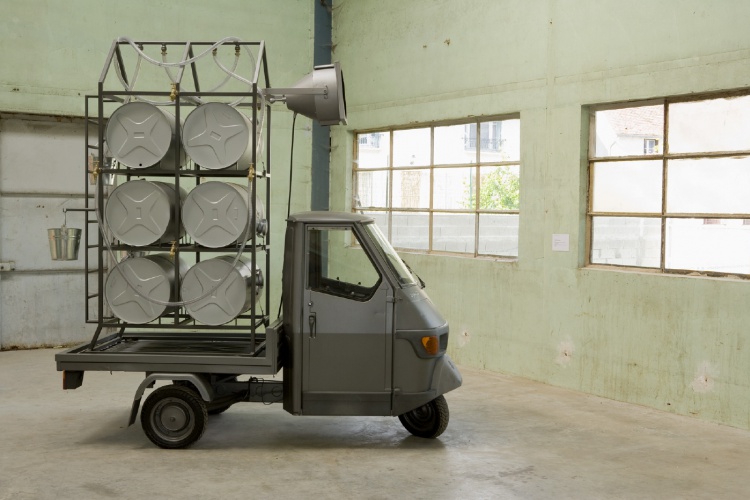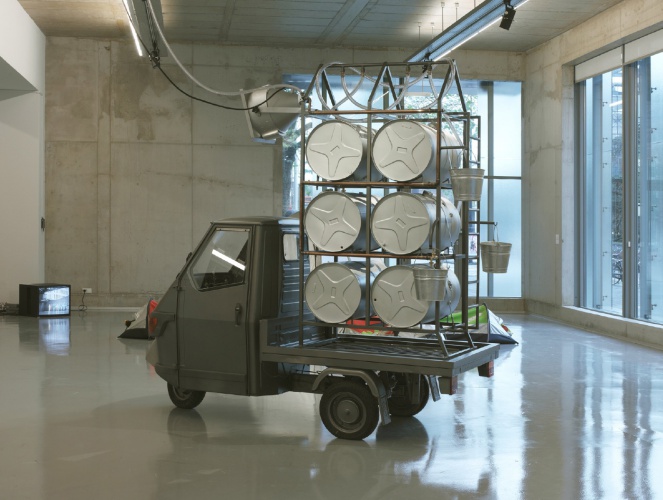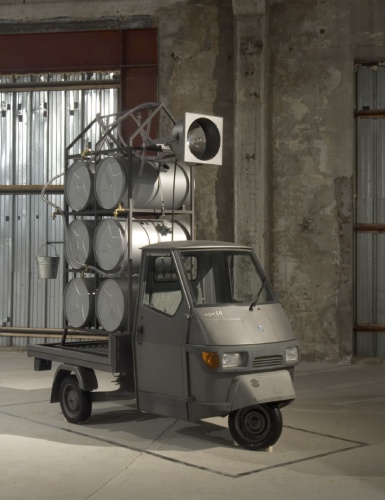OrtaWater - M.I.U. Mobile Water Storeage Tank Unit
Date:
2005
Ref:
1316
Matériaux:
APE 50 Piaggio, steel structure, 6 steel water drums, plastic tube, taps, 3 buckets, copper tube
Dimensions:
320 x 100 x 250cm
Catalogued:
Lucy + Jorge Orta: Food Water Life, Princeton Architectural Press, NY, pp.88-89
Exhibition history:
2008 Hangar Bicocca Milano; Galleria Continua - Le Moulin; 2005 Fondazione Bevilacqua La Masa, Venice; Museum Boijmans van Beuningen, Rotterdam
Courtesy:
Lucy + Jorge Orta
Originally co-commissioned by Fondazione Bevilacqua La Masa for the 51st Venice Biennale and the Museum Boijmans Van Beuningen Rotterdam (2005-2006) the body of work OrtaWater focuses on the general scarcity of water and issues surrounding the privatization and corporate control effecting access to clean water. Starting from a rigorous analysis of this crucial resource through visual and textual research and collaborative workshops with engineers, Lucy + Jorge Orta sketch poetic artefacts, sculptures, large-scale installations and public artworks that evoke the cycle of gathering, purifying and distributing water.
One angle of their research visualises low-cost water purification devices enabling filthy water to be pumped and filtered directly from local sources. Waters that have been purified and distrubuted include the Venice's Canal Grande, the Emmersingel in Rotterdam (2005) the Hang Pu River in Shanghai (2012), and the Canal de l'Orcq in Paris (2014). Fully functioning water purification devices are incorporated into the sculptures and linked by a network of pipes, visitors to the exhibitions can simply turn on the taps integrated into each sculpture, take a drink of the clean water, or purchase an OrtaWater bottled edition to take home.
For the Mobile Intervention Units, the artists ingeniously transform hand carts into portable fountains, small urban vehicles like the Ape Piaggio are equiped with huge water resevoirs and original Mexican and Chinese tricycles are customised to transport this precious liquid. The OrtaWater sculptures suggest multiple poetic possibilities for sustainable water collection and dissemination in the future.


